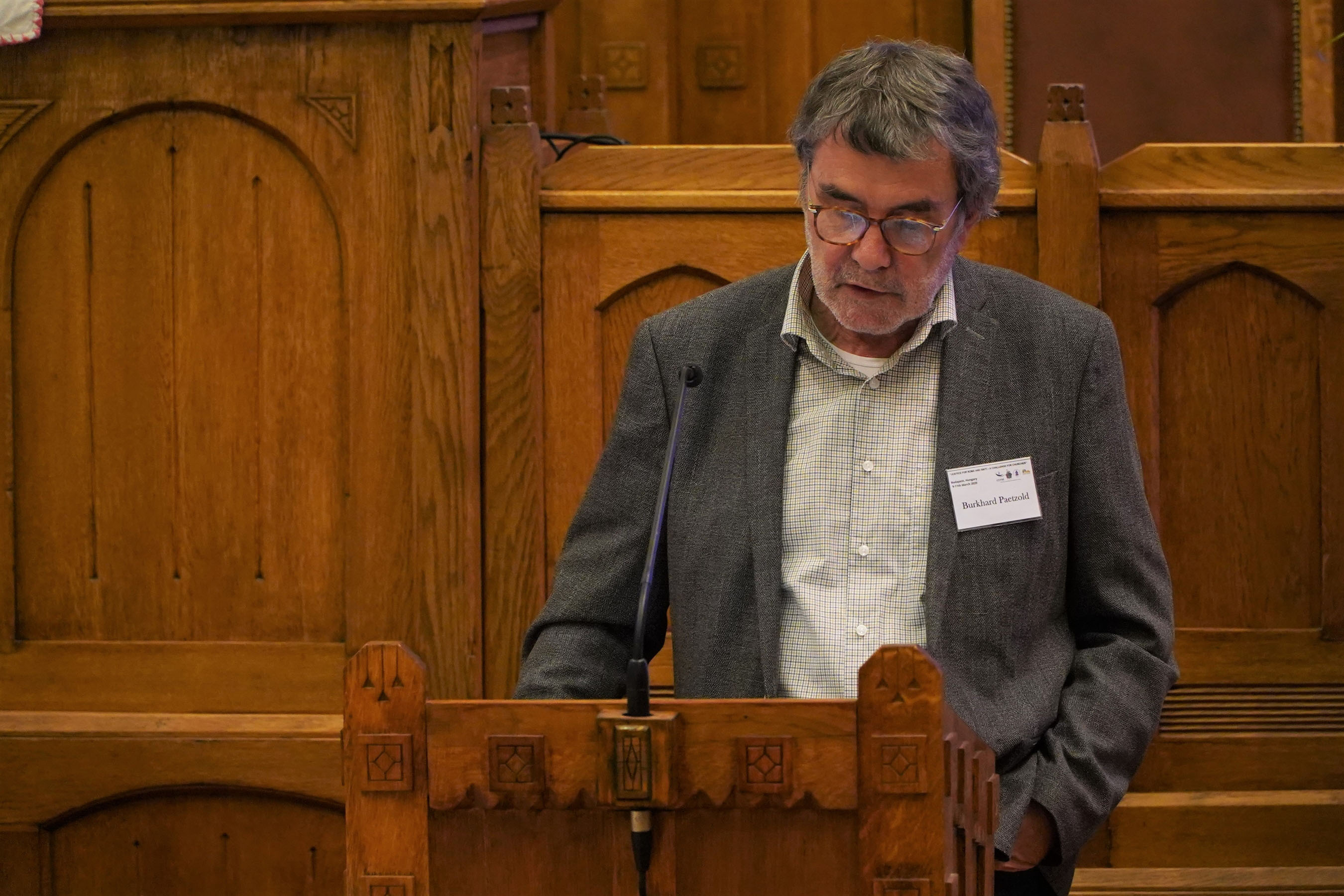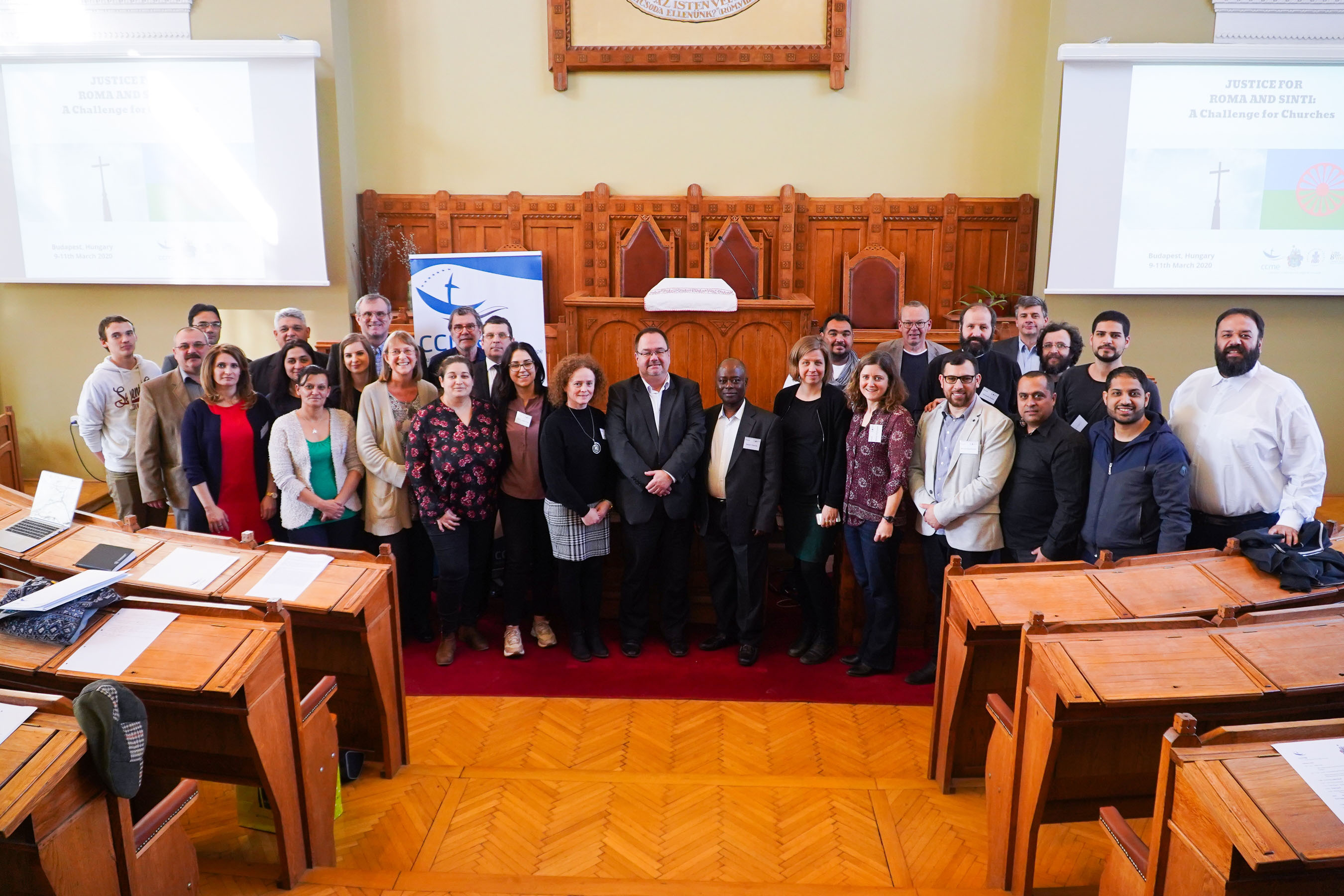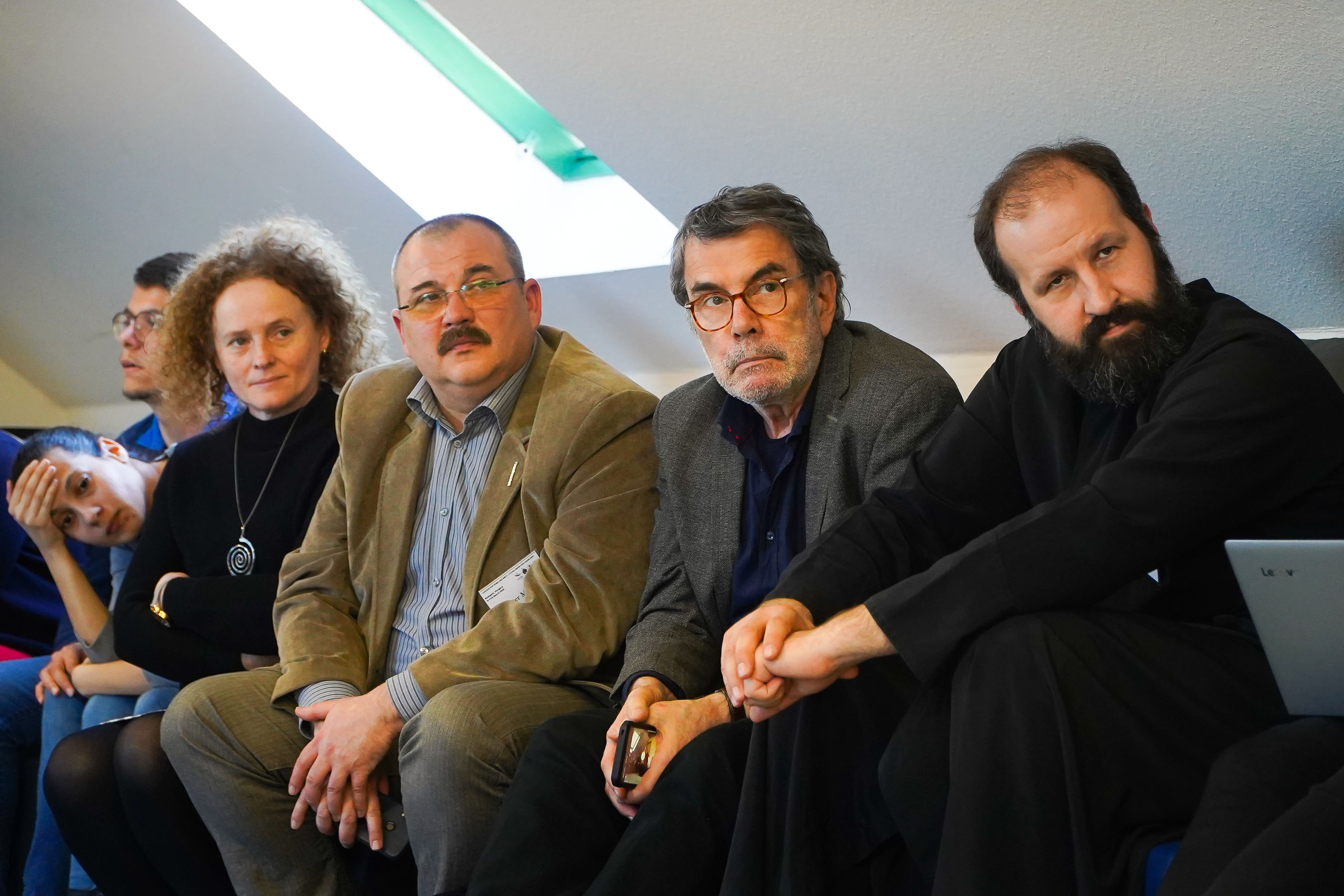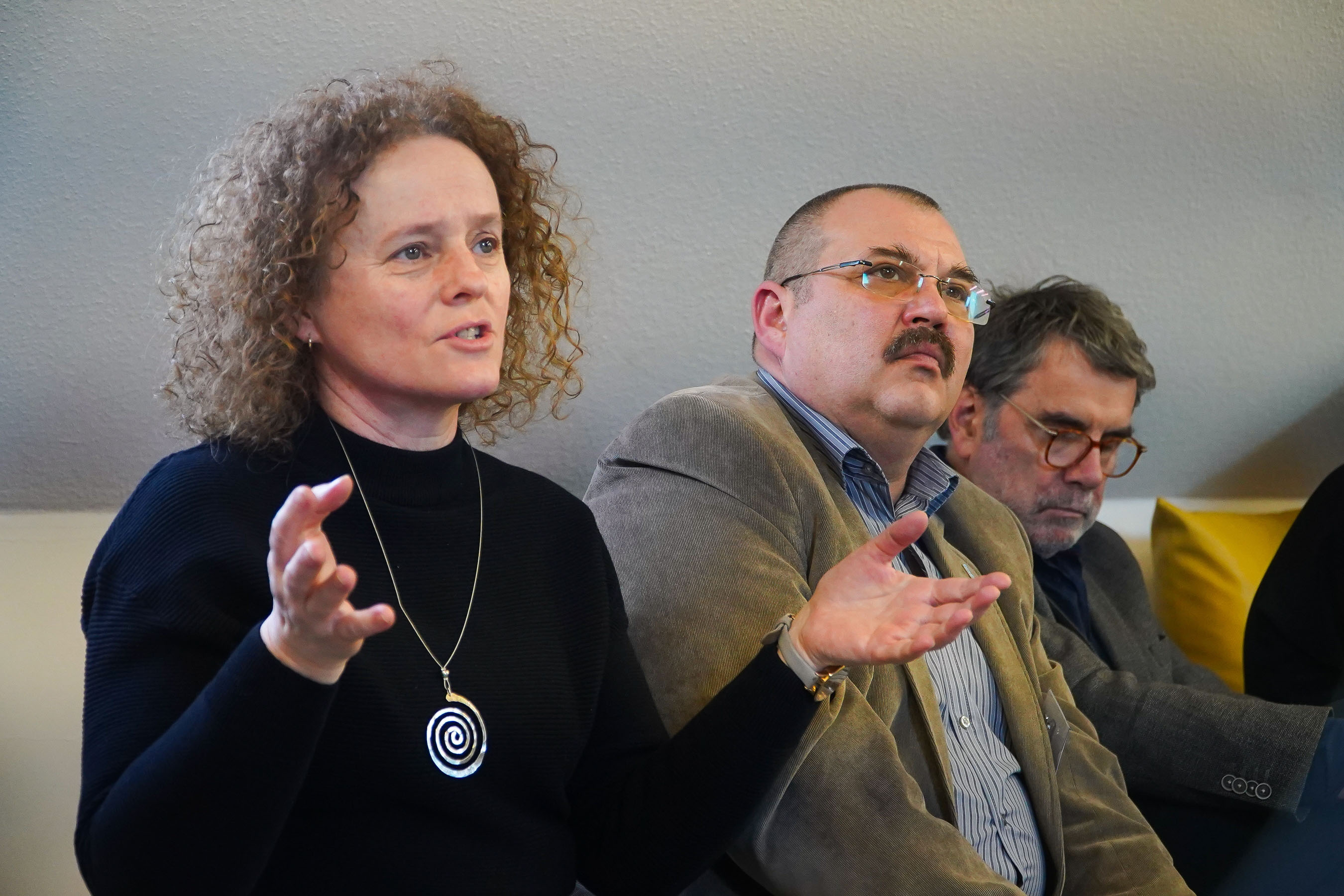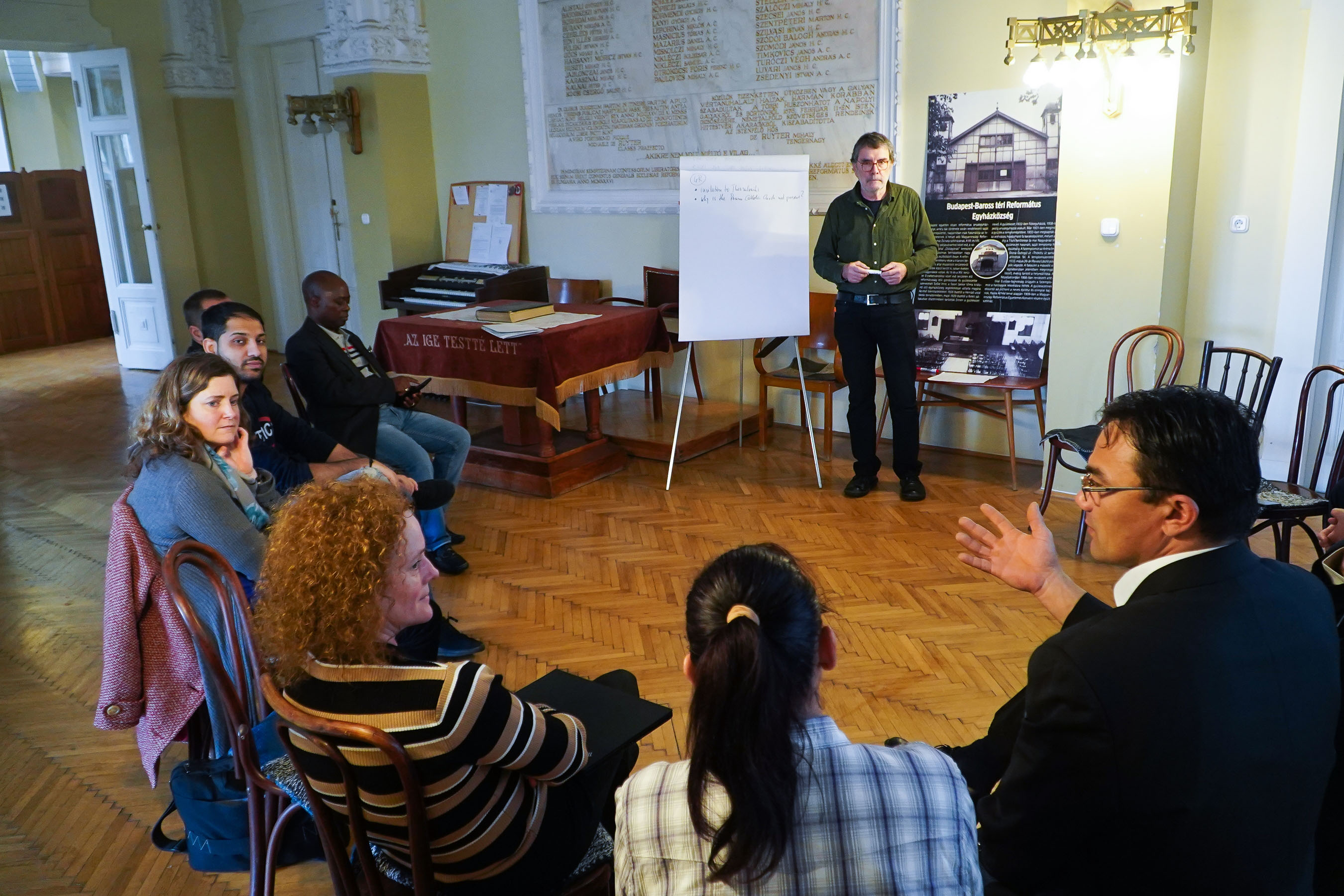A Letter from Burkhard Paetzold, serving as regional liaison for Central and Western Europe and Facilitator of work with the Roma people, based in Germany
April 2020
Write to Burkhard Paetzold
Individuals: Give online to E200392 for Burkhard Paetzold’s sending and support
Congregations: Give to D506900 for Burkhard Paetzold’s sending and support
Churches are asked to send donations through your congregation’s normal receiving site (this is usually your presbytery)
“For in this hope we were saved. But hope that is seen is no hope at all. Who hopes for what they already have? But if we hope for what we do not yet have, we wait for it patiently.” (Romans 8:24-25)
“The world as we know it is dissolving. But behind it comes a new world, the formation of which we can at least imagine. For this I would like to offer you an exercise … We call it the RE-gnosis. In contrast to the PRO-gnosis, we do not look ‘into the future’ with this technique. But from the future BACK to today. Sounds crazy? Let’s try it…”
(Matthias Horx)
Dear friends,
I hope you are well and safe. And I thank you all for your greetings and support.
I’m writing this at the end of Lent in Holy Week and Easter. A very unusual Easter. Churches are closed. Congregations are not allowed to meet. Effective a number of weeks ago, I had to cancel all my travels for the next several weeks and work only from my home office. There is a lockdown in Germany, but my wife and I are fortunate to be in good internet connection with colleagues, family, and friends and to have a yard and a forest nearby where we can run for exercise.
It is Good Friday. Illness and death and darkness. A Dark Friday. Terrible images from Northern Italy and New York have been engraved into our collective memory. At this time, the whole world seems to be infected by darkness and suffering. And once again: the weakest are suffering most. The refugees living in crowded camps on the Greek islands have been almost forgotten in the rest of Europe. They have no way to practice social distancing and no means for hygiene. Churches and civil society are calling for their evacuation. But Europe remains hard-hearted.
And it is difficult for others who live at the edge, the marginalized, the homeless, the Roma. One of my last trips before the lockdown was to Budapest to attend a conference on “Justice for Roma and Sinti – a challenge for Churches.”
And then comes Easter Saturday and we are in limbo. We don’t know what will happen. People tell us we can only expect that things will get worse. We’re not yet in the deepest valley. We hear: “No Easter worship is allowed.” And fake news and conspiracy theories are spreading. Some people are trying to take advantage of the fear of others. What will happen? I can literally feel the pain and hopelessness that Jesus’ disciples must have felt when Jesus was crucified.
And then, Easter morning – finally. The victory of life over death. The quietness of nature returns without the sound of automobile traffic to muffle it. Flowers blooming. Bird songs. I read that dolphins are returning to the lagoon of Venice now that there are no cruise ships arriving. I read about smog-free cities in China and air fleets on the ground …But besides those signs of nature taking a deep breath, we see all those big or little victories of life over death that people are working hard for: Nurses and doctors risking their lives, farmers, grocery shop owners and other supply people, bus drivers and many, many others who never stopped working and still show responsibility in doing what they need to do to avoid transmitting the coronavirus. However, some of them simply cannot distance from each other. A friend not far from where I live runs a mobile social service for the elderly and cannot get masks for her many employees to protect her vulnerable clients.
Whether we are enjoying the rebirth of nature passively or fighting death and destruction actively, I think Easter invites us to look at our existence in the world from a retrospective perspective. What will be after the crisis? Can we put ourselves into that perspective already today? Can we turn the natural flow from life to death around? Can we look at the seed that dies in the ground from the perspective of the fruit-bringing tree that will grow from it? Can we look at our existence from a future perspective of life’s victory? Christ’s victory over death and illness, destruction, and darkness mean this: Death does not have the last word.
It’s hard to admit that a crisis might entail chances for change because it could sound cynical to those who are suffering in the crisis right now. On the other hand, we will get nowhere, if we keep on walking the same path we have been on over the last years, wasting resources like there is no tomorrow, neglecting social equality, flouting any norms of social justice, exploiting the poor in the Global South, and fighting each other in wars as well as in our so-called social media.
“There is a crack in everything. That’s how the light gets in,” sings Leonard Cohen.
We don’t see the change that is already built in. “But if we hope for what we do not yet have, we wait for it patiently,” says Paul. And we can see signs and be faithful. (This is the faith that moves mountains.) I see these days many good examples of faith. I see people caring for the elderly. I see refugees sewing much-needed masks for hospitals and mobile care teams. On TV, I see people singing arias from their balconies in Italian cities. In the midst of all the restrictions like physical distancing that we must now live with, I see how we are creatively learning new forms of togetherness, creativity, and self-efficacy.
Might this crisis offer us a chance to re-learn about human scale growth, sustainability, and community solidarity?
If we spend billions to bail out industries and entrepreneurs, can’t we ask in turn that in the future, we don’t do the same things that have failed in the past? Isn’t it fair for us to expect funding to go to strengthening community, solidarity, sustainability, and building an economic infrastructure that protects rather than damages nature?
All this is neither about a cheap optimism nor wishful thinking. We all know a crisis brings out the best and the worst in people.
But we have choices. Or, to say that as we as people of faith would say, we can be faithful or not.
Let’s not look at this as a cheap pro-gnosis, as if things have to move on in the same way they always did.
Timothy Snyder labels two worldviews, which in very different ways are not productive at all: the politics of inevitability, which is “the sense that the future is just more of the present, that the laws of progress are known, that there are no alternatives, and therefore nothing really to be done. In the American capitalist version of this story, nature brought the market, which brought democracy, which brought happiness.”
“The collapse of the politics of inevitability,” writes Snyder, “ushers in another experience of time: the politics of eternity.” In recent years, we have seen a growing rejection of democratic pluralism and of the right to make our own choices, which taken together lead to a one-dimensional vision of the world, with an unambiguous view of the enemy. “Whereas inevitability promises a better future for everyone,” Snyder notes, “eternity places one nation at the center of a cyclical story of victimhood.”
The crisis of this new coronavirus is a watershed, which just might be showing us the fight going on between these two unproductive worldviews.
But as people of faith, we see the world from a future perspective of potential life-giving changes. Can we trust that people are able to learn? Can this crisis help us learn and choose life?
This crisis is a warning. I pray that God may help us discern it.
Grace, peace, and hope,
Burkhard
![]() You may freely reuse and distribute this article in its entirety for non-commercial purposes in any medium. Please include author attribution, photography credits, and a link to the original article. This work is licensed under a Creative Commons Attribution-NonCommercial-NoDeratives 4.0 International License.
You may freely reuse and distribute this article in its entirety for non-commercial purposes in any medium. Please include author attribution, photography credits, and a link to the original article. This work is licensed under a Creative Commons Attribution-NonCommercial-NoDeratives 4.0 International License.
